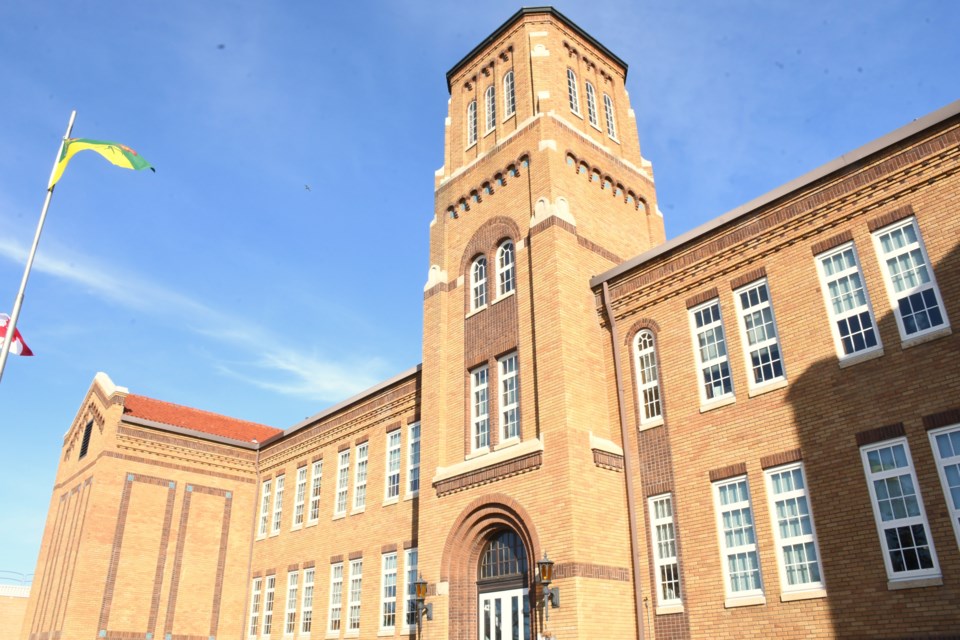MOOSE JAW — Recent layoffs at Saskatchewan Polytechnic have sparked a wider conversation about the future of post-secondary education in the province — and both the Official Opposition and the Saskatchewan Party government say they are committed to finding solutions.
The Sask. NDP first raised concerns after the institution announced another 14 out-of-scope job cuts last month, citing a $14 to $15 million budget shortfall. The school already laid off 27 staff earlier this year — with at least one employee from Moose Jaw let go.
Tajinder Grewal, MLA for Saskatoon University–Sutherland and Opposition shadow minister for advanced education, said the cuts come at a time when the demand for skilled workers in industries such as health care, mining, agriculture, and technology is high.
“This is basically due … to insufficient levels of provincial funding,” Grewal said. “For a strong Saskatchewan, we need a strong Polytechnic.”
Grewal said the province’s share of Sask. Polytech’s operating budget has fallen from about 60 per cent two decades ago to 50 per cent or less today.
“When I was talking to (Sask. Polytech management, faculty, and staff), they were very innovative (in finding) solutions … we (just) need to consult with the right people,” he said, pointing to current program waitlists in trades and health care training. “If you have a 95 per cent success rate, why are you not investing in that success?” he added, referring to the success rate of Sask. Polytech grad students in finding work in their field.
He further added that many Sask. Polytech graduates remain in their communities, strengthening local economies and filling high-demand roles such as health care.
Whereas Grewal acknowledged that international student enrolment numbers are down, he does not attribute recent layoffs and potential program cuts solely to this development. Instead, he contends that the institution has been forced to rely on these student fees to compensate for ongoing budget cuts, saying the root of the issue is a consistent decrease in government funding.
The Sask. Party government said the challenges are not unique to the province and are being felt nationwide due to recent changes to the federal International Student Program. Those changes, including a permit cap, have reduced enrolment and in turn, revenue from tuition fees.
“Sask. Polytechnic, along with other post-secondary institutions across Canada, are making difficult decisions because of the changes to the International Student Program the federal government has made which have reduced student enrolment,” said Megan Patterson, MLA for Moose Jaw-Wakamow, in a written statement.
Patterson said the province is advocating with Ottawa to address the permit cap’s impact on recruitment and on international students’ perception of Canada. She also noted that the province has extended its multi-year funding agreement with post-secondary institutions by one year, increasing operational funding by $6 million across the sector.
“Our government supports post-secondary institutions through regular grant funding … We continue to be committed to a strong post-secondary sector in our province ensuring exceptional training opportunities for our students to help provide them a bright future right here in Saskatchewan,” Patterson said.
In response to the extended one-year funding agreement, Grewal called for longer-term, multi-year funding agreements to give institutions stability and allow them to confidently plan programs years in advance. By contrast, Patterson said the Sask. Party government remains confident in the institution to manage its finances appropriately.
Sask. Polytech has said the layoffs represent about 10 per cent of its out-of-scope workforce, with further cost-saving measures likely in the months ahead. The institution’s “Leading the Rise” strategic plan for 2026–2030 emphasizes maintaining high graduate employment rates — currently about 90 per cent — and aligning programming with industry needs.




